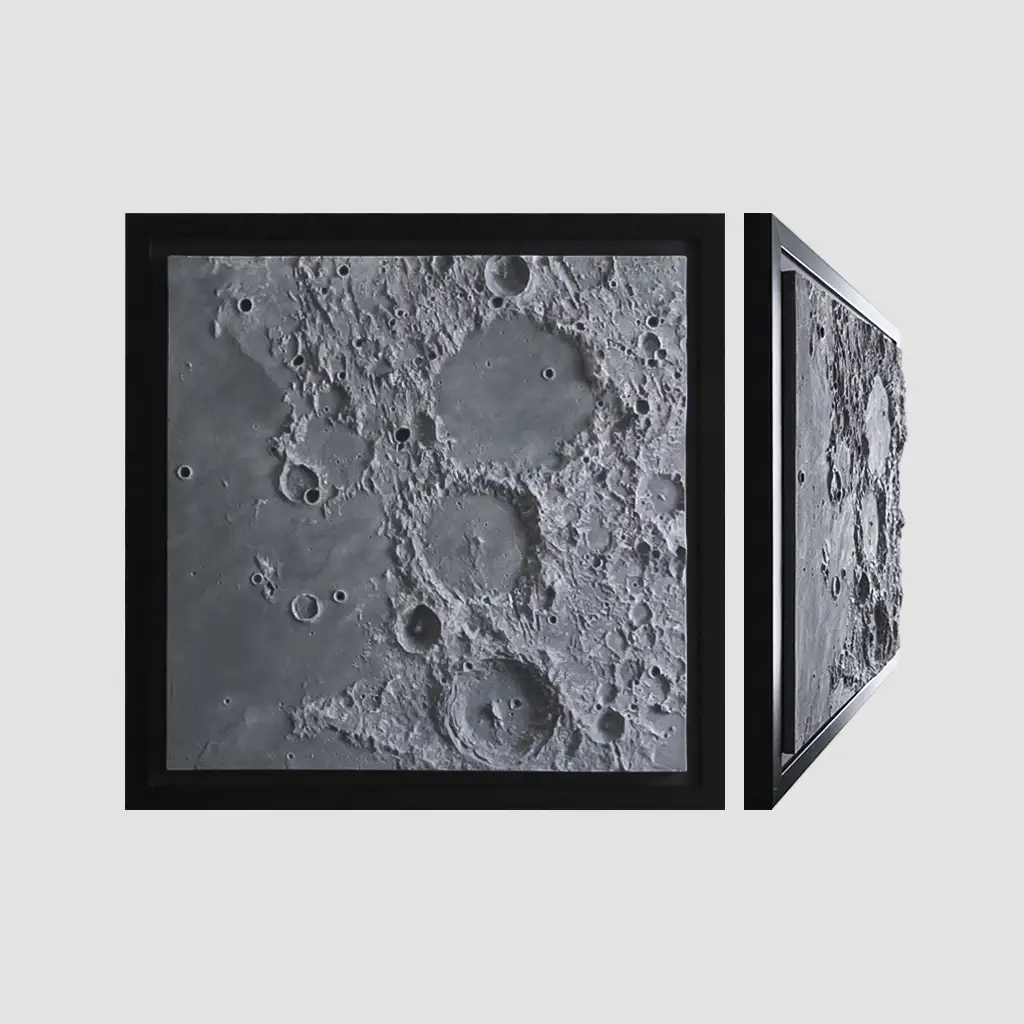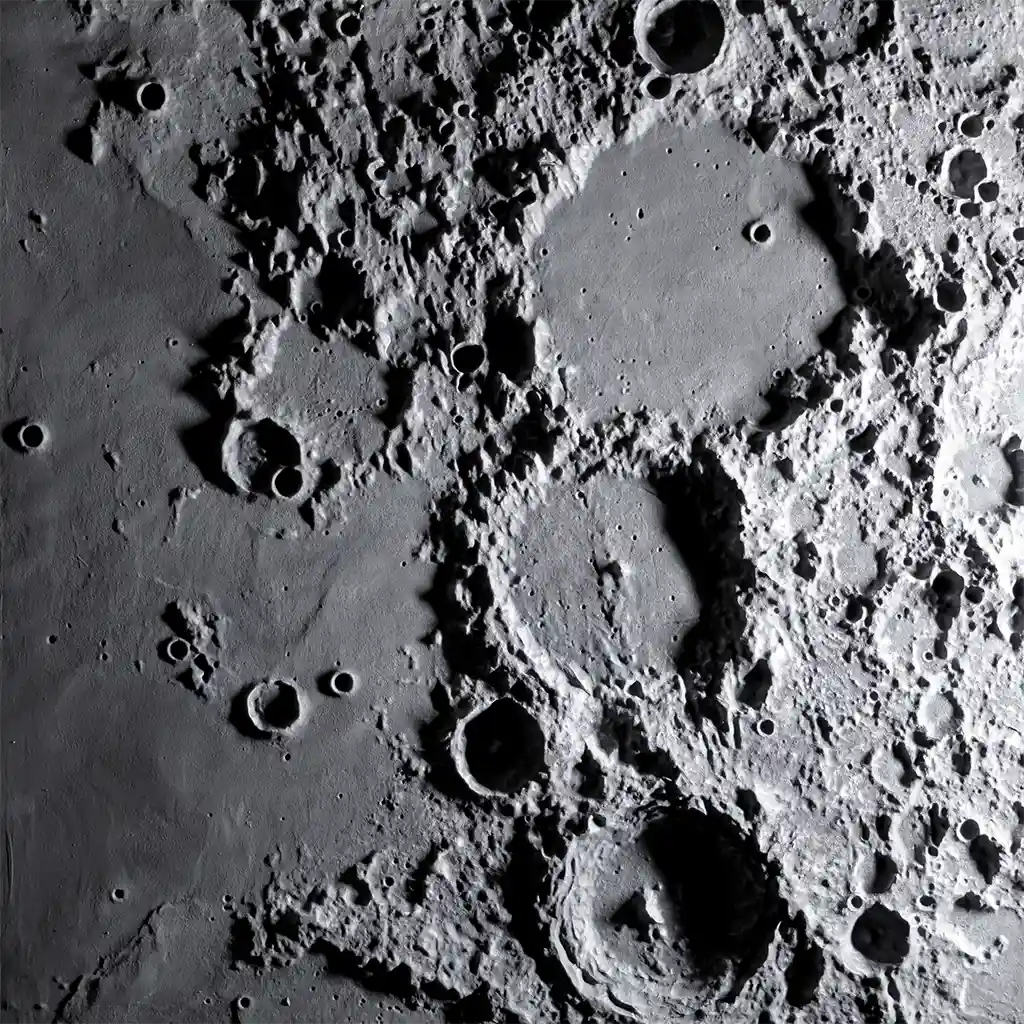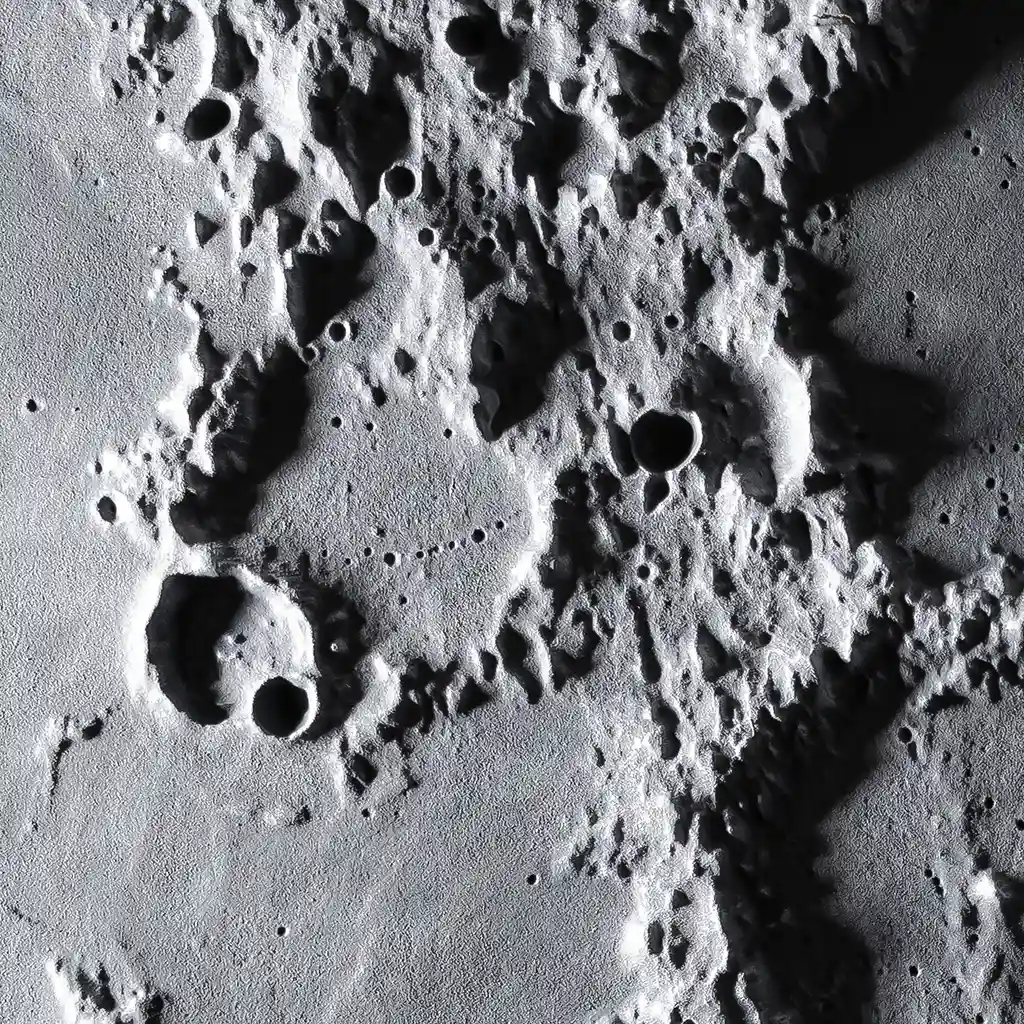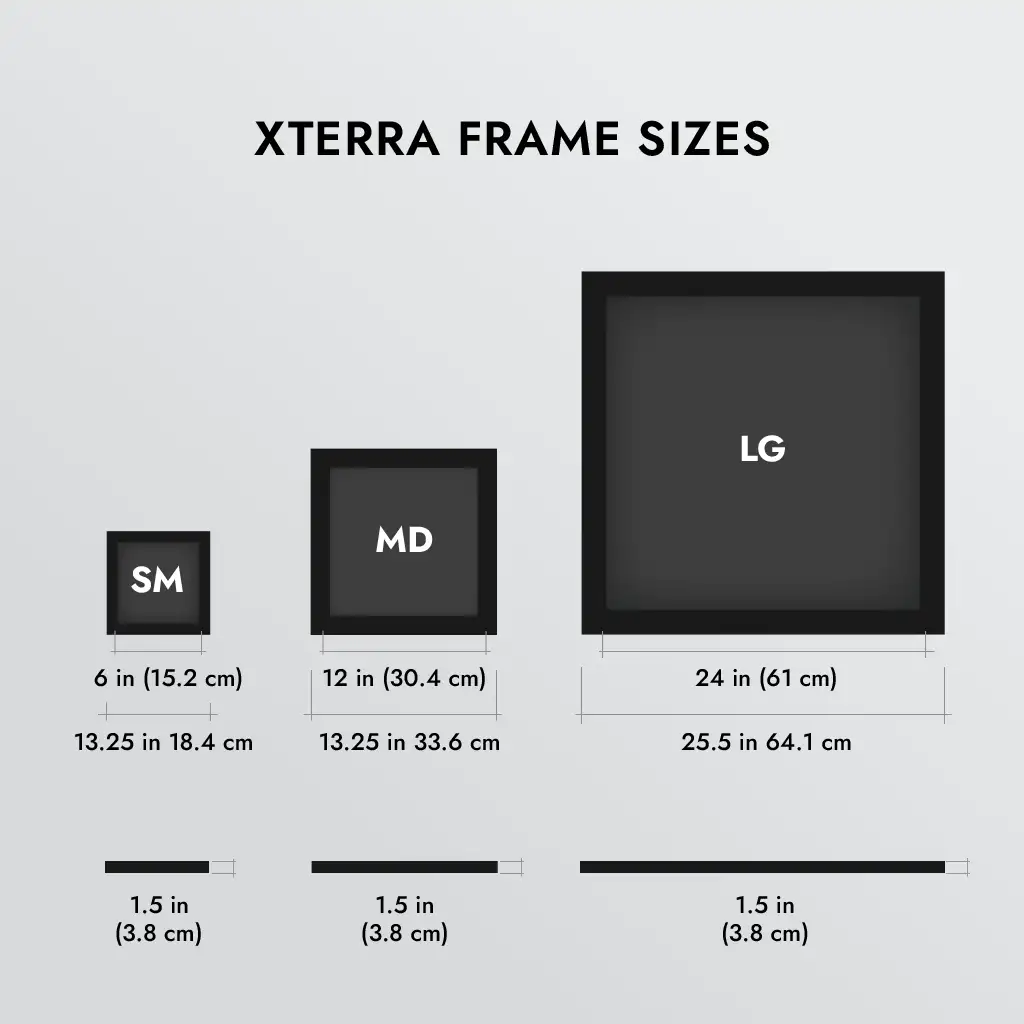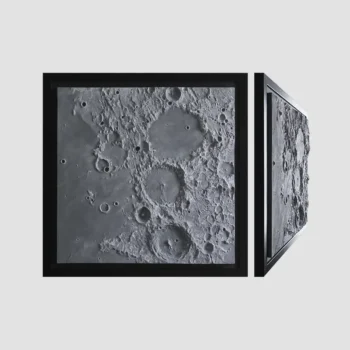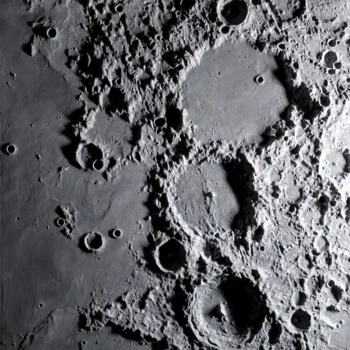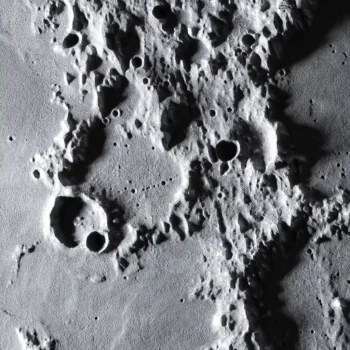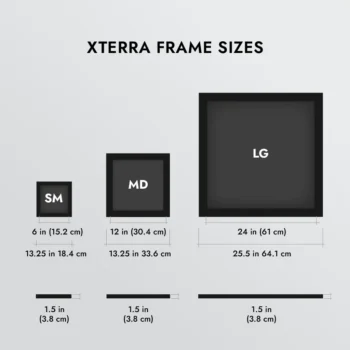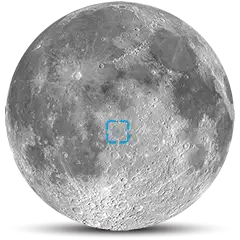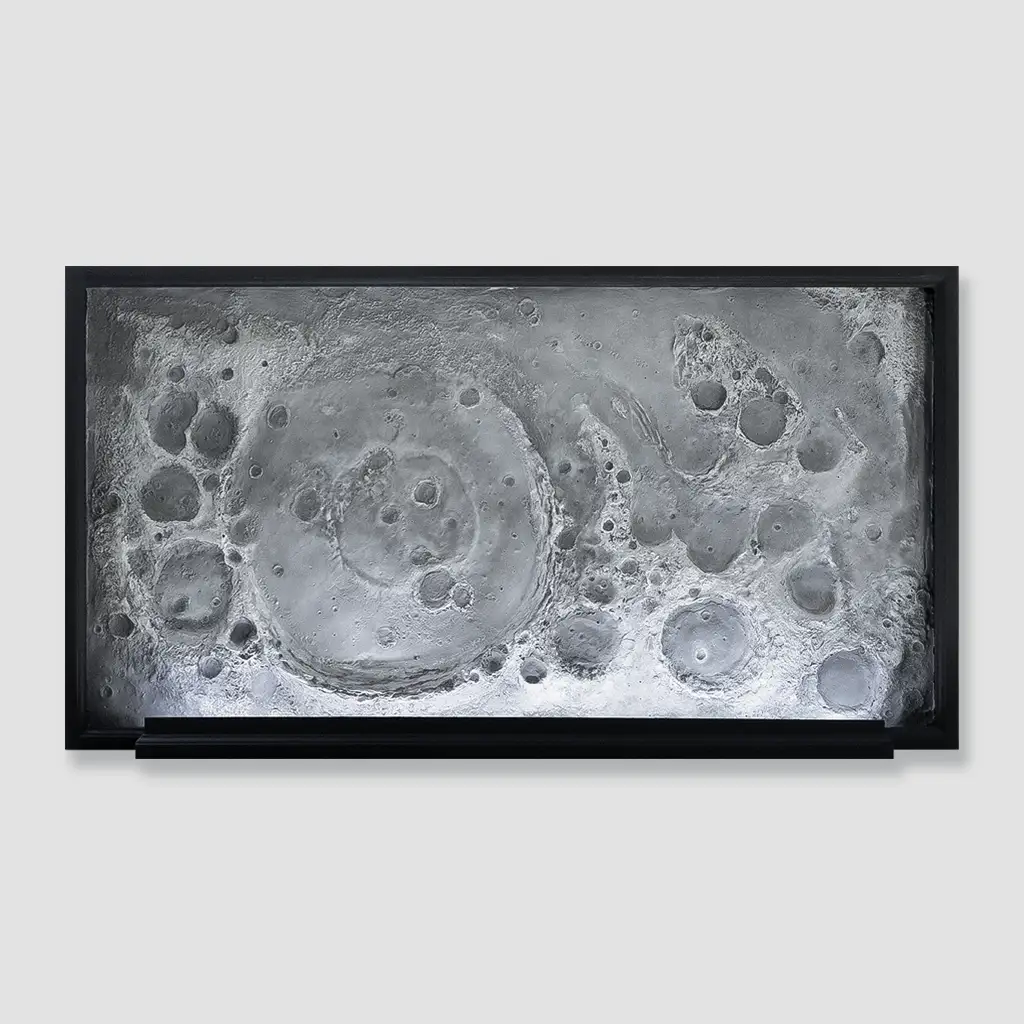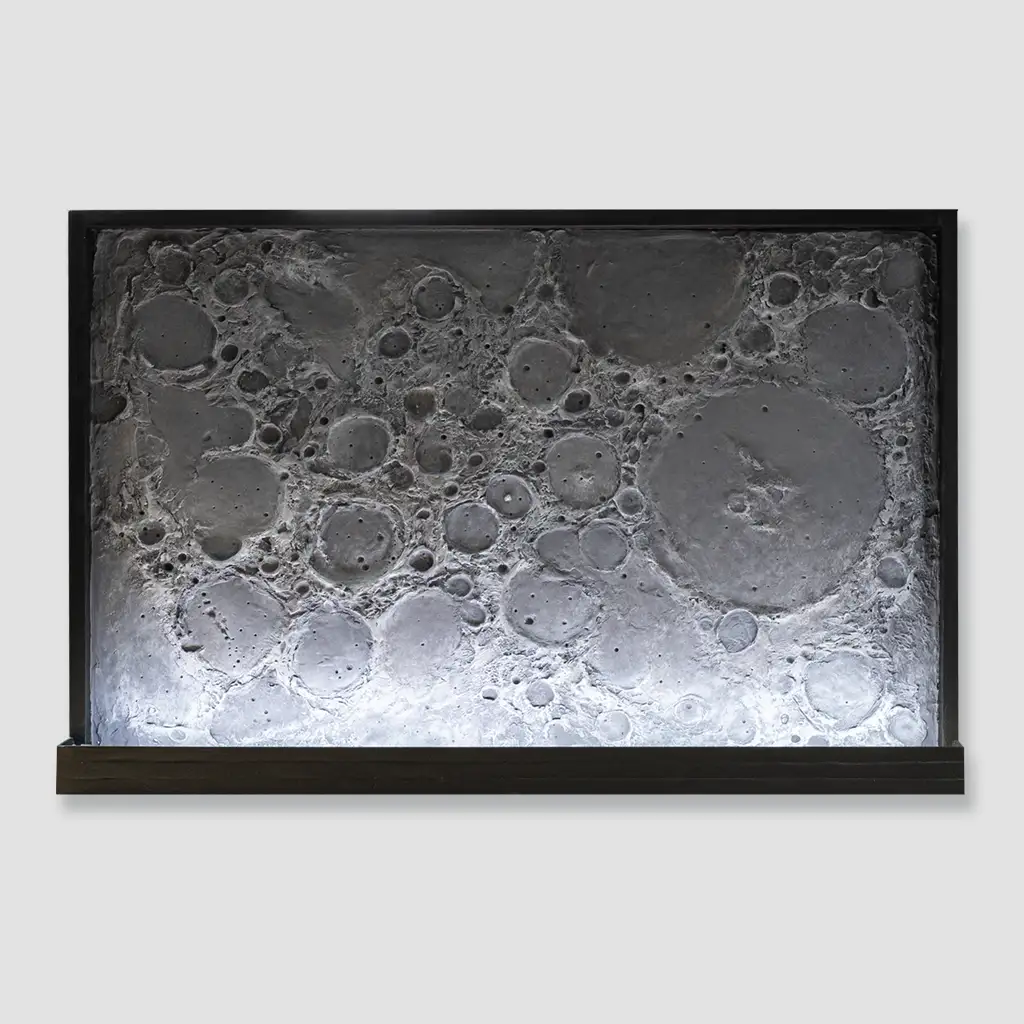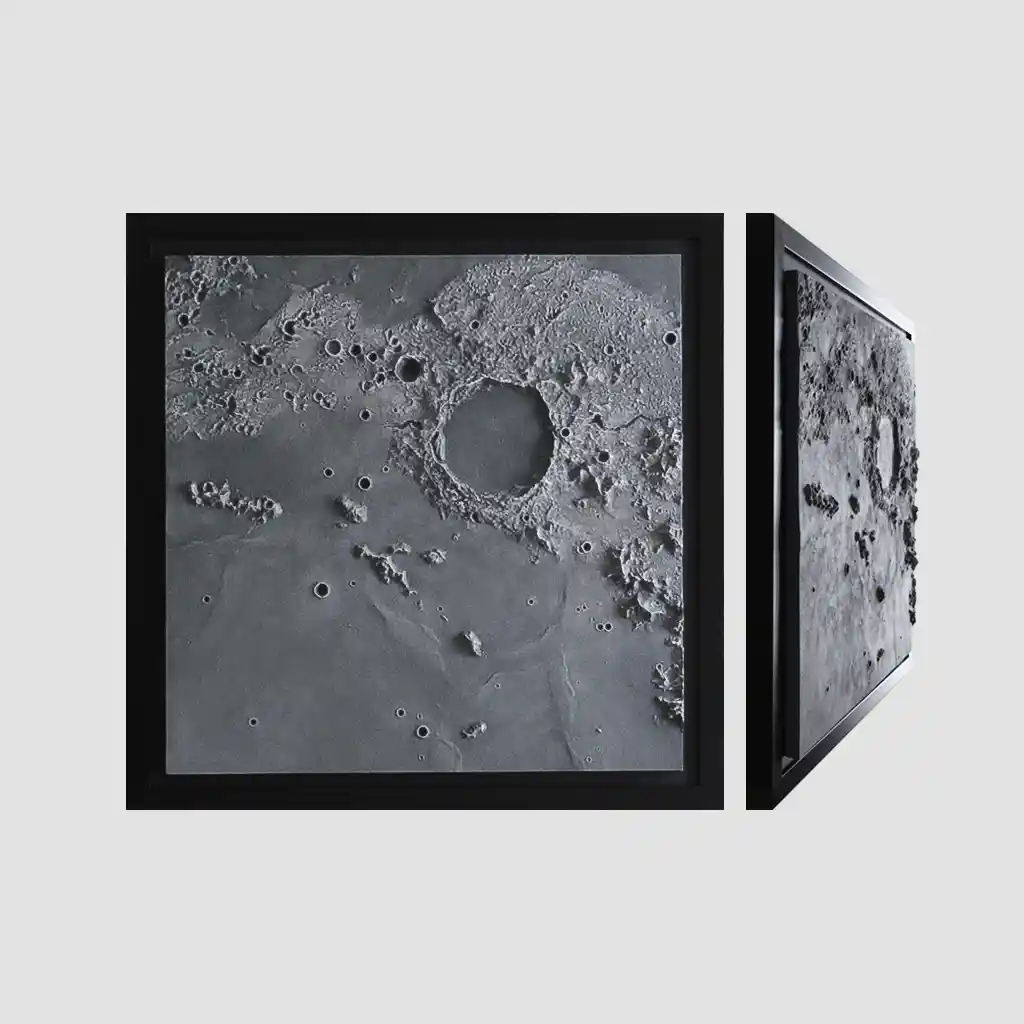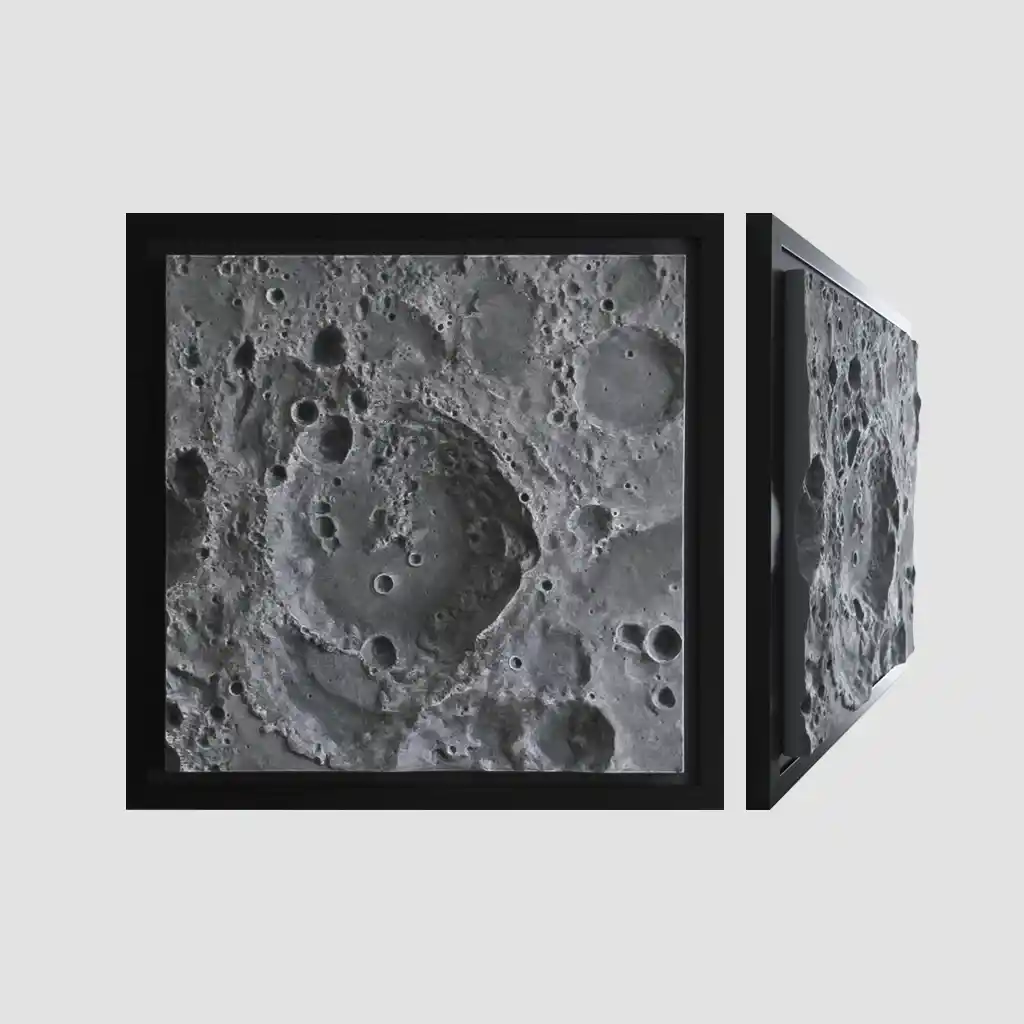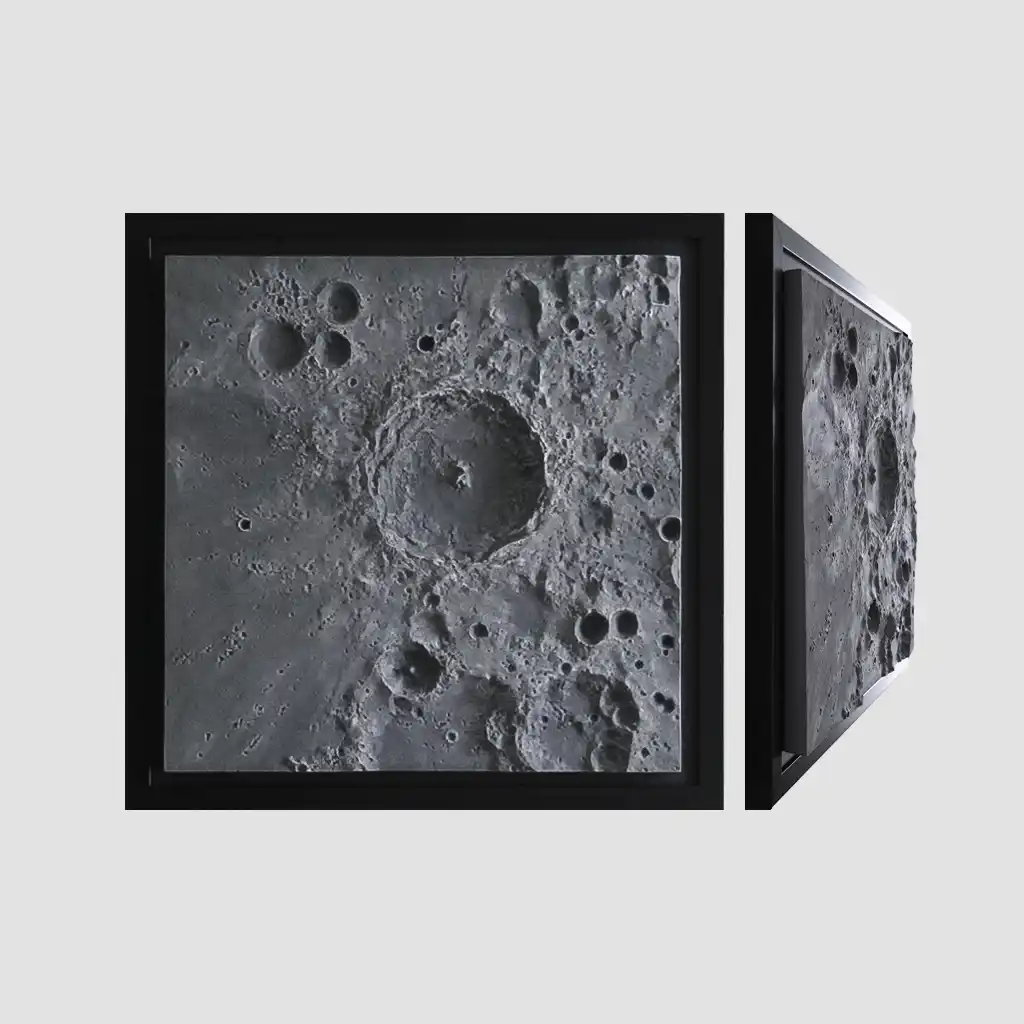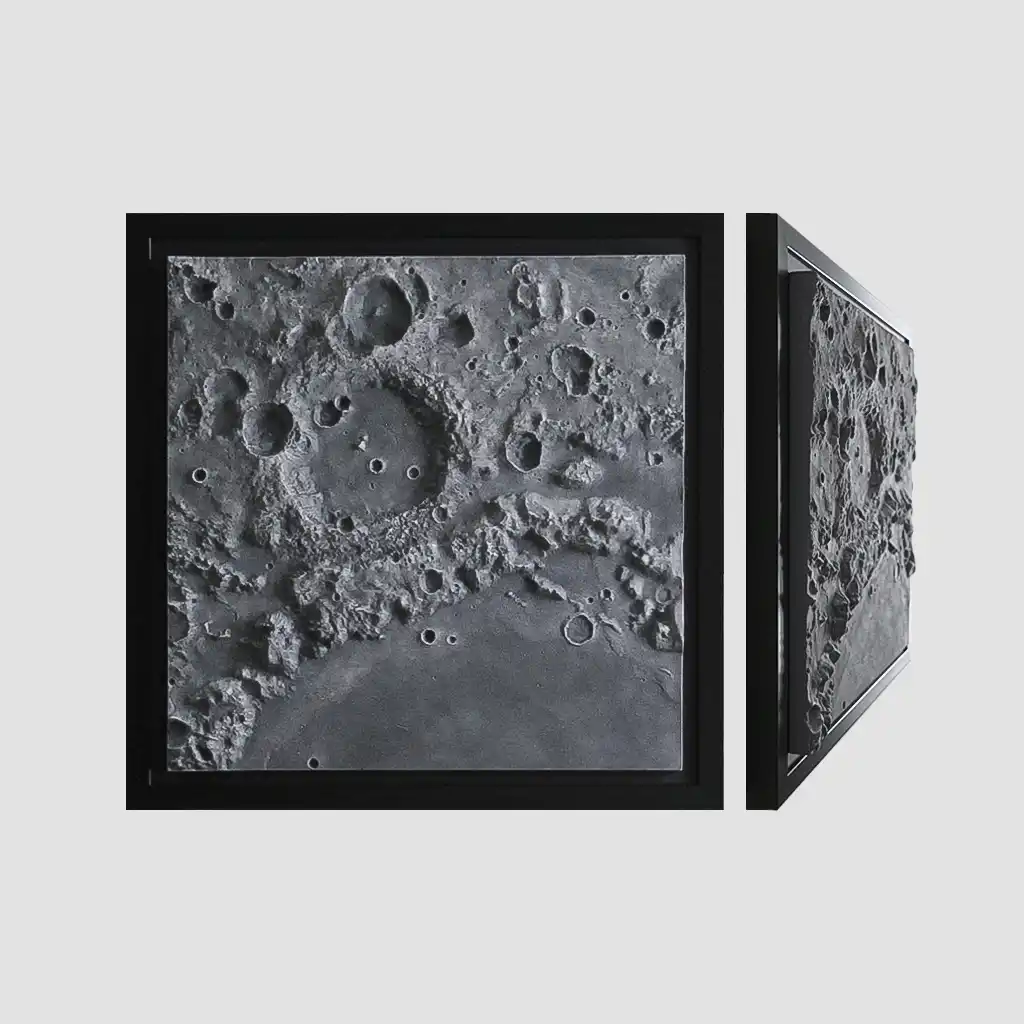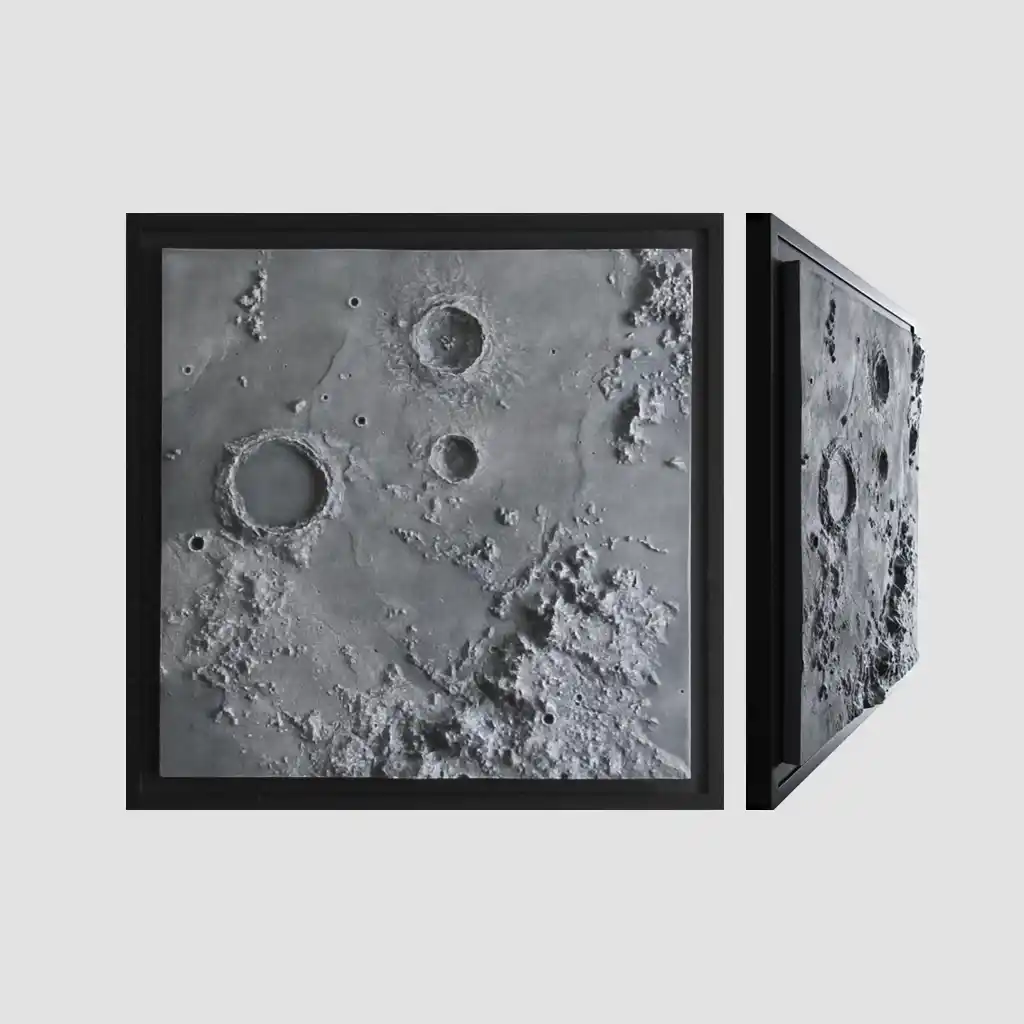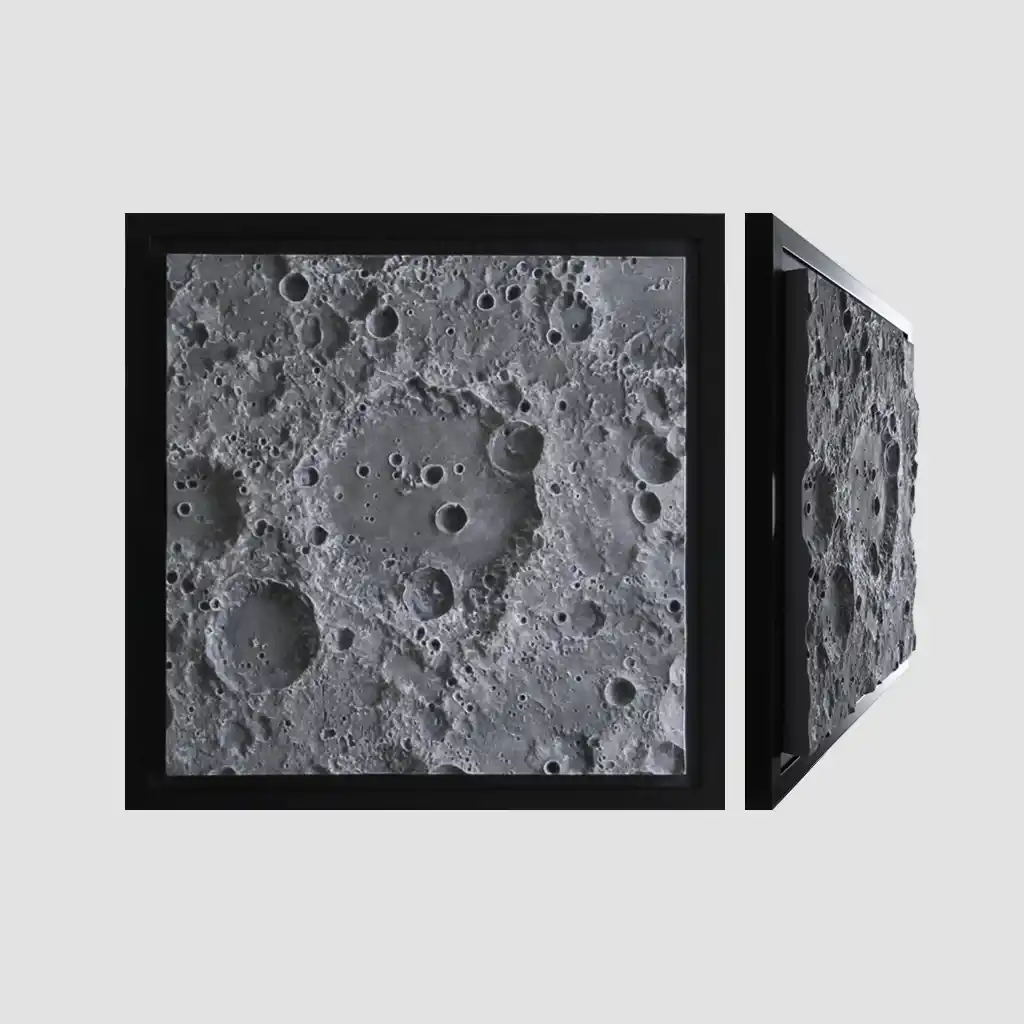Scientific Interest
The Ptolemaeus Crater region, on the Moon’s central near side, is an ancient impact feature of great scientific interest. It provides valuable insights into the Moon’s early geological history and evolution.
Formed over 3.9 billion years ago during the Nectarian period, this region reveals key details about the Moon’s early impacts and the shaping of its highlands.
Ptolemaeus is known for its smooth, basalt-covered floor, contrasting with its heavily cratered surroundings. This surface offers clues about ancient lava flows and volcanic activity. Smaller craters, like Ammonius, provide insights into secondary impacts and ejecta movement.
The thick, mature regolith here, shaped by billions of years of micrometeorite impacts, is ideal for studying the effects of space weathering on lunar materials.
Nearby craters such as Alphonsus and Arzachel, together with Ptolemaeus, form a group that helps scientists study lunar tectonics, volcanism, and impact processes.
With its smooth terrain and central location, the Ptolemaeus region is a prime site for future exploration. Sample collection and analysis could uncover crucial data about the Moon’s crust and impact history.
This region continues to be a focus for lunar research, offering insights into the Moon’s ancient past and its ongoing surface processes.
Formation
The Ptolemaeus Crater region on the Moon formed over 3.9 billion years ago during the Nectarian period, a time of intense asteroid and meteoroid impacts. The crater was created by a large impact event, which excavated a broad, flat basin with a diameter of approximately 153 kilometers.
Over billions of years, the crater’s features have been modified by subsequent impacts, space weathering, and the accumulation of regolith. Its basalt-covered floor, contrasting with its heavily cratered surroundings, suggests ancient volcanic activity. The region’s formation reflects the dynamic processes that shaped the Moon’s early surface and highlands.
Age 3.9 BYO
Eponym Claudius Ptolemy
Location of Ptolemeaeus Crater Region as Seen from
the Earth’s Northern Hemisphere
* This item is artisan crafted with meticulous care. Given its handmade and hand-finished nature, variations are to be expected and celebrated.
| Size | Width | Height | Depth |
|---|---|---|---|
| S | 7.25 in (18.4 cm) | 7.25 in (18.4 cm) | 1.5 (3.8 cm) |
| M | 13.25 in (33.6 cm) | 13.25 in (33.6 cm) | 1.5 in (3.8 cm) |
| L | 25.25 in (64.1 cm) | 25.25 in (64.1 cm) | 1.5 in (3.8 cm) |
| XL (Coming Soon) | 49.25 in (125.1 cm) | 49.25 in (125.1 cm) | 3.25 in (8.3 cm) |
Add a review
Shipping
Where do you ship?
We primarily ship within the continental United States, with shipping costs included in the product price. For customers outside the U.S., a nominal shipping fee will apply. Please contact us, and we’ll work with you to ensure your Xterra Frame reaches your location.
How long does shipping take?
This is determined by your location. Orders are shipped from our Raleigh location and should arrive to you within a week of the shipping notification.
Are your products in stock?
Every model is handmade and produced individually. To reduce waiting times, we begin creating your order the very next day and most orders are shipped within 2 weeks of your order.
How much does shipping cost?
Shipping is included within the cost of your Xterra frame.
How do I know when my order will arrive?
You will receive a notification and tracking number via email after your order has been processed.
Where is my order?
Each order will receive a tracking number where you can look up online to determine where your order is and when you anticipate it’s delivery.
Returns
Returns will be accepted for up to 14 days of Customer’s receipt of tracking number from Xterra. You, as a Customer, are obliged to inform us via email before you return the item.
To be eligible for a return, your item must be unused, in the same condition that you received it, and in the original packaging.
ARTEMIS COLLECTION
PTOLEMAEUS
FREE SHIPPING on orders in the Continental United States
Every product is uniquely handmade, requiring a minimum of three weeks to achieve its distinct quality.
ABOUT (TABLET & Mobile)
Copernicus Crater offers insights into the Moon’s history. Its bright rays mark it as a young crater, named after Nicolaus Copernicus in the 17th century.
Its well-preserved state reveals impact dynamics and Moon structure. Spacecraft data identify minerals like basaltic rock, shedding light on the crust.
Formed 800 million years ago, Copernicus helps refine lunar cratering timelines and reveals surface processes. It remains a key site for future exploration.
Location of Ptolemaeus Crater as Seen from the Earth's Northern Hemisphere
Materials
*This item is artisan crafted with meticulous care. Given its handmade and hand-finished nature, variations are to be expected and celebrated.
Dimensions
| Size | Width | Height | Depth |
|---|---|---|---|
| S | 7.25in (18.4 cm) | 7.25in (18.4 cm) | 1.5 (3.8 cm) |
| M | 13.25 in (33.6 cm) | 13.25 in (33.6 cm) | 1.5 in (3.8 cm) |
| L | 25.25 in (64.1 cm) | 25.25 in (64.1 cm) | 1.5 in (3.8 cm) |
| XL | 49.25 in (125.1 cm) | 49.25 in (125.1 cm) | 3.25 in (8.3 cm) |
